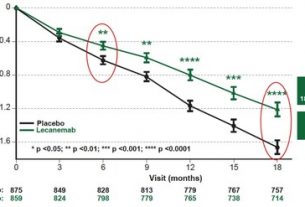The government is set to break a manifesto promise by raising taxes in order to pay for reforms to the UK’s crisis-hit social care system.
Boris Johnson assured voters he had a plan to sort out social care two-and-a-half years ago while the 2019 election manifesto explicitly promised not to raise rates on national insurance, income tax or VAT.
However, the Guardian reports Johnson’s government is “close to announcing” an increase of a least 1% to the national insurance rate to fund reform. The Financial Times says chancellor Rishi Sunak is considering “a tax rise clearly linked to the funding of social care” – this despite ingrained Treasury opposition to specific taxes ring fencing revenue for specific spending.
Health secretary Sajid Javid backs raising taxes to fund reforms of the failing social care system and the former chancellor is said to be “sympathetic to a Japanese-style levy on the over-40s to fund” it.
The FT reports Javid will “form a powerful alliance” with his successor Sunak to insist reform is funded by higher taxes.
The health and social care levy
Sunak’s hike is likely to be called the “health and social care levy”, and a former Treasury permanent secretary has said that now is an opportune time for a new tax.
“The public want greater NHS capacity and a better social care and this can’t be financed by fiddling around the edges of the tax system,” Nick Macpherson told the FT.
“A social solidarity charge payable by all adults at a rate of 2% to 3% of their income could put the health and social care sector on a sustainable footing”.
The UK’s tax burden has grown to its highest since the 1960s, and the BBC states that for “someone on average earnings of £29,536 a year, a 1% increase in national insurance would cost them £199.68 annually.”
UK economy generates £2,300 billion per year
Chris Giles in the Financial Times lays out the costs of some of the pressing demands on the UK economy – which generates “roughly “£2,300bn a year” – with £10bn needed for healthcare providers to maintain service levels, £10bn to fix social care, £5.8bn for catch-up teaching, £4bn for pensions, extra billions for railways to avoid bankruptcy, and billions more to clear the backlog in the judicial system.
“But the good news is that the UK can afford it,” writes Giles, asserting there is no need to return to pre-pandemic levels of spending as borrowing can be repaid over many years, while a faster economic recovery could net a £25bn-a-year windfall for the Treasury [pdf].
Paying for the ‘wonderful miracle’
Former health secretary Jeremy Hunt writes in the Telegraph that “the time has come for a new health and care premium” to pay for the costs of caring for an aging population.
“Last year was the first in human history where there were more over-65s than under-18s,” writes Hunt, continuing: “In the UK, the number of people aged 65 and over is growing three times faster than the number aged under 65.
“It is a wonderful miracle that we are living longer, but one with dramatic consequences for NHS and care spending. A 50-year-old man costs the NHS just under £500 on average – but by the time he is 85, that rises to nearly £4,000. Our hospitals will be 40% busier in 15 years’ time, according to one study.”
Hunt – who chairs the Commons health committee – supports raising tax instead of increasing national insurance rates that “disproportionally targets” the young as it is not deducted from the earnings of people over the state pension age.
“Since older people are the biggest beneficiaries [of social care], it’s fair they should make a contribution,” Hunt told the BBC.
National insurance is paid at 12% on earnings over £9,568 up to £50,000. On income over £50,000 the rate is 2%.
Zarah Sultana, Labour MP for Coventry South, tweeted: “Social care should be modelled on the NHS: Free at the point of use, accessible to everyone who needs it.
“That should be funded by tax rises on the super-rich and big businesses, not by raising taxes on the working class.”




